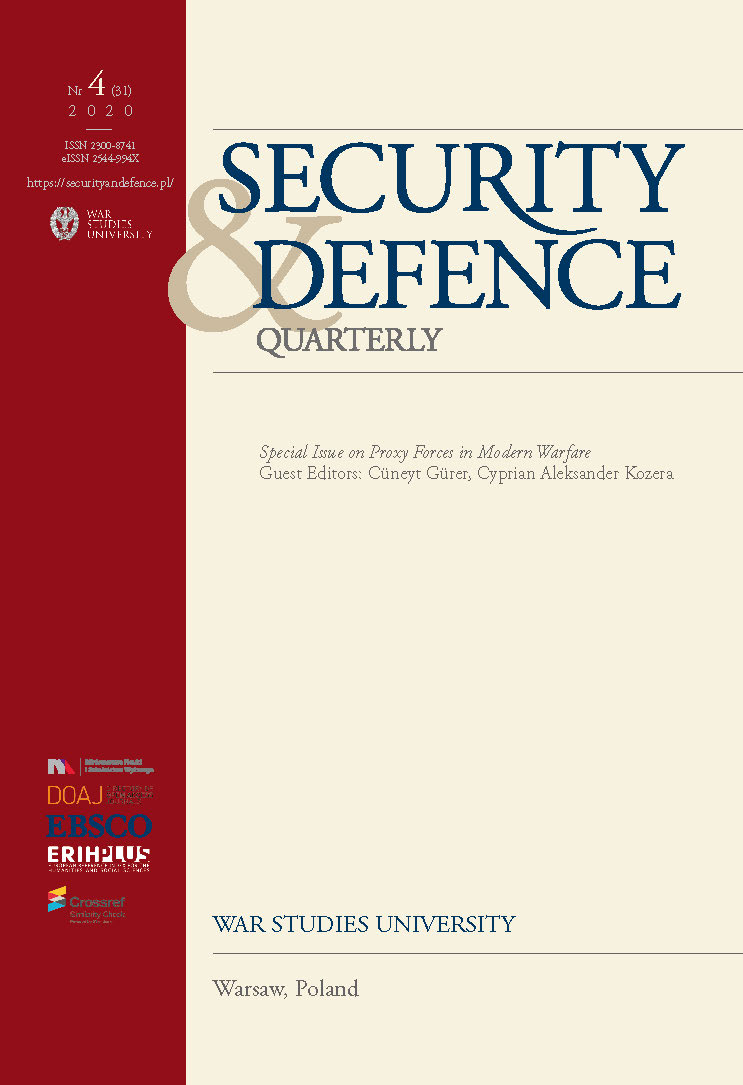Turkey’s approach to proxy war in the Middle East and North Africa
Turkey’s approach to proxy war in the Middle East and North Africa
Author(s): Engin YükselSubject(s): Geopolitics, Peace and Conflict Studies
Published by: Akademia Sztuki Wojennej
Keywords: Turkey;strategy;proxy war;Middle East and North Africa;
Summary/Abstract: The last decade has seen a growing trend towards the use of proxies in the Middle East and North Africa following the outbreak of the Arab Spring. In this context, the issue of Turkey’s approach to proxy war in these regions has received considerable attention since 2016. Thereby, the purpose of this article is to investigate the essential characteristics of Turkish proxy war strategy in Syria and Libya. As such, this study intends to trace the development of Turkish proxy war strategy by making use of the conceptual frameworks proposed by Groh (2019), O’Brien (2012) and Art (1998). The most obvious finding to emerge from the analysis is that Turkey changed its indirect intervention strategy from donated assistance to proxy warfare in Syria and Libya when it saw a greater need to influence the result of the conflicts. In the case of Syria, this study has shown that the controlthrough-centralisation approach towards the Armed Syrian Opposition has enabled Turkey to carry out an effective proxy war strategy from 2016 onwards. In Libya, the results of this investigation have shown that theTurkish Army has pursued a proxy war strategy since Ankara and the Government of National Accord (GNA) signed an agreement on security and military cooperation in December 2019. The article concludes that Turkey has centralised many revolutionary groups under an Islamist-nationalistic vision and partnered them with its own military in order to expand its influence in the Middle East and North Africa.
Journal: Security and Defence Quarterly
- Issue Year: 31/2020
- Issue No: 4
- Page Range: 137-152
- Page Count: 15
- Language: English

